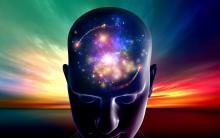- regulation of the functioning of the endocrine system;
- acceleration of the formation of antibodies;
- decreased intellectual, emotional and physical activity;
- slowing down puberty;
- regulation of seasonal biorhythms in animals;
- positive impact on adaptation processes when changing time zones;
- increase in life expectancy;
- performing the function of antioxidants;
- strengthening immunity.
- exacerbation of chronic diseases;
- problems with memory and concentration;
- pressure surges;
- constant lethargy and drowsiness;
- headaches.
- children and adolescents;
- with disorders of the nervous, endocrine, immune and excretory systems;
- with oncological diseases.
Nothing happens in the human body without a reason. The sleep hormone melatonin is the reason people feel sleepy when night falls. The article will help you understand how melatonin works and how to overcome insomnia with it. We will also consider the most effective drugs for normalizing sleep and restoring performance.
Let's talk about the sleep hormone in simple words
Much in our life depends on the correct production of certain substances by the body. Melatonin is one of the most important human hormones. He is responsible for setting biorhythms. Malfunctions of this substance respond to problems with sleep, depression, and a decrease in life expectancy.
Melatonin can be compared to a traffic controller. Or with a conductor. The hormone controls the “colleagues” and sends signals to the cells that it is time to prepare for a change in the phases of life. Thanks to him, the body systems are configured in a different way, allowing us to fall asleep and recover.
The amount of melatonin decreases over the years. In infants, the production of this hormone is ten times more intense than in an adult. That is why in the first years of life we easily fall asleep, and sleep is long and strong. Due to the low production of hormones, it is often difficult for older people to surrender to Morpheus and Hypnos.
Functions and mechanism of action of melatonin
Sleep hormone production occurs in the pineal gland (pineal gland), located in the center of the brain. It is also synthesized here - the hormone of joy. The source for melatonin and serotonin are the same substances. This largely explains the emotional discomfort associated with problems with melatonin synthesis.
The pineal gland is not the only generator of "sleepy" stuff. There is hundreds of times more of it in the gastrointestinal tract than in the brain. But in the digestive tract, melatonin performs a different function and behaves differently than a hormone. The kidneys and liver also produce it, but for completely different purposes that are not related to sleep.
The sleep hormone is a “beacon” that informs the body about the onset of night. And to be more precise - about the onset of the dark time of the day. Therefore, it would be more correct to call this substance the hormone of the night. The mechanism of its synthesis is associated with the biological clock, which is responsible for the frontal zone of the hypothalamus. From here, through the retina and the cervical region of the spinal cord, a signal goes to the epiphysis.
All body cells have a built-in timer. They have their own "dial", but the cells are able to synchronize time. And melatonin partly helps them in this. It is he who informs the cells that it is twilight outside the window and you need to prepare for the night.
In order for the generation of melatonin not to fail, the body must sleep. Darkness is essential for good sleep. Light - natural or artificial - dramatically reduces the intensity of hormone synthesis. That is why turning on the lamp disrupts sleep.
If the level of this substance in the body is low, sleep loses its restorative function - it becomes superficial. Given the association with serotonin, it's understandable why sleep deprivation is always associated with poor mood and well-being.
List of functions of melatonin:

How and when is the sleep hormone produced?
The amount of melatonin production is tied to circadian rhythms. About 70% of the hormone is produced between midnight and 5 am. During this time, the body synthesizes 20-30 micrograms of the substance. The peak concentration in most people is observed at 2 am. The increase in synthesis begins with the onset of twilight. In this case, any lighting can stop the synthesis. Therefore, it is better to stop working at a computer or using a smartphone at least a couple of hours before bedtime.
But this does not mean that the complete absence of light can automatically lead to an increase in the concentration of the hormone. The degree of illumination is the main indicator hinting to the pineal gland for shock work, but not the only one. In practice, the mechanism of action is much more complicated, so we adapt to the biorhythms and needs of the body. As soon as strength is restored, the need for large doses of melatonin will disappear.
The hormone produced during sleep can also be obtained from the outside. It is found in food and special preparations.
In food
The presence of melatonin in products takes place, but its amount is so small that it is not able to have any tangible effect.
Recall that the body itself produces up to 30 micrograms of melatonin per day. That is, hundreds of times more than a person can get even from walnuts.
In foods, melatonin acts as an antioxidant. It plays the same role in the body - it protects DNA and stops the negative effects of oxidative processes. Simply put, the hormones released during sleep are essential for slowing down aging.
In preparations
Since melatonin synthesis decreases with age, many people have to make up for the deficiency of the hormone with drugs. In Russia, drugs with melatonin are considered dietary supplements and sold without a prescription. The substance is sold under the trademarks "Circadin", "Sonovan", "Melaxen", etc.
You need to pay attention to the dose. It is necessary to start with the minimum dosage. And only if the effect of the drug is not noticeable or weakly expressed, the dose is increased. Synthetic hormone should be taken a quarter of an hour before bedtime, in the dark or in subdued light. Do not eat at least one hour before taking the drug. It is important to keep in mind that taking pills in bright light makes no sense - the effectiveness of dietary supplements is sharply reduced.
Before using artificial melatonin, be sure to consult your doctor. In some countries, the sale of such drugs is prohibited. In any case, self-medication can be fraught with health problems.
Another remark. If insomnia is caused by stressful situations, pills will not help. As natural plentiful secretion will not help either. And this is an additional reason to think carefully before turning to drugs for help.
The dangers of too much melatonin
Even if the doctor is not only not against taking melatonin tablets, there is no need to be zealous. Excessive doses will lead to the fact that the body will synthesize the hormone in a smaller amount.
As a result of violations of the natural secretion of a substance, one can expect:
In addition, women may face problems regarding procreation.
Contraindications to the use of drugs with melatonin
Preparations containing melatonin are contraindicated:
Pregnant women and women seeking to become pregnant are also not recommended to take pills. Do not use drugs for diabetics and people suffering from high blood pressure. Taking melatonin and antidepressants at the same time, you need to be prepared for possible unpleasant consequences.
People whose professional activities are associated with the need to concentrate for a long time, taking "synthetics" is also undesirable. Since melatonin leads to lethargy, ignoring this recommendation is fraught with unpredictable consequences.











Aromatherapy - Essential oils: table of properties and uses
Cleansing the energy of the apartment with a church candle
Essential oils for aromatherapy: properties, uses and contraindications
Weakness in the body and drowsiness: causes in adults
How to clean an apartment from negativity with a church candle